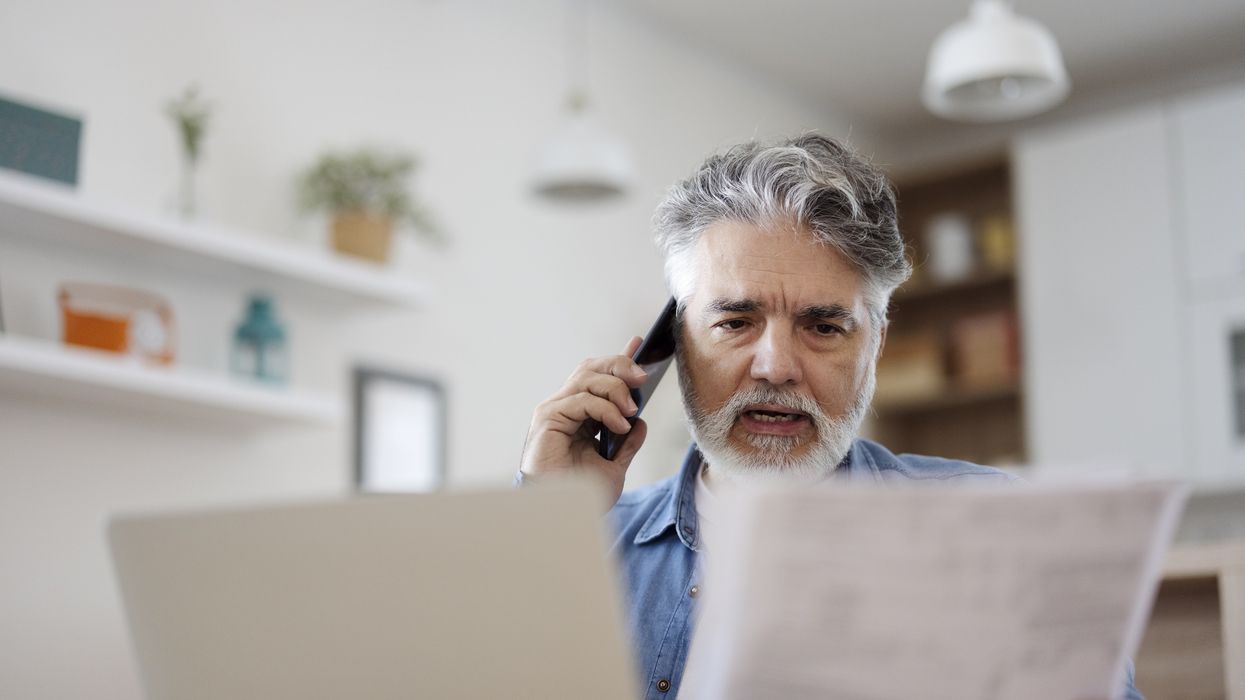Hundreds of thousands of pensioners urged to set aside part of state pension for unexpected tax demands

The state pension is expected to increase by 8.5 per cent, in line with earnings, in April 2024
|GETTY

The state pension looks set to increase by 8.5 per cent under the triple lock mechanism, after a 10.1 per cent rise earlier this year
Don't Miss
Most Read
Latest
Hundreds of thousands of pensioners are being urged to consider setting aside some of their state pension to pay for unexpected tax demands.
It comes as more pensioners are set to be dragged into the income tax net, due to large increases in the state pension and a continued freeze of income tax trhesholds.
The state pension is a taxable form of income, but is paid gross, meaning any tax due as a result of breaching the £12,570 personal allowance will normally be collected by a person’s PAYE tax code on any occupational pension or earnings they may get.
However, hundreds of thousands of pensioners will have no PAYE income, such as earnings or private pensions, which can be used to collect the tax owed, new analysis by LCP has found.
WATCH NOW: GB News panellists discuss state pension triple lock
As a result, these pensioners will get tax demands the year after they have received their pension, sparking warnings to set money aside now for when the tax demand arrives.
This is known as a “simple assessment”, but according to former Pensions Minister Steve Webb, pensioners may not be aware of this – nor realise they are at risk of getting unexpected tax demands.
Do you have a money question or story you'd like to share? Get in touch by emailing money@gbnews.uk.
Steve Webb, partner at LCP said: “Millions of pensioners have been dragged into the tax net for the first time in recent years, primarily because of the multi-year freeze on tax thresholds.
“Many are now at risk of an unexpected letter from HMRC asking for tax they may not have realised was due.
"Any pensioner with a pension next year over £242 per week will have tax to pay, and if they do not have a private pension through which the tax can be collected, they may need to set some money aside for an unwelcome tax demand.”
Under the “simple assessment” process, the DWP will notify HMRC at the end of the tax year about how much state pension each individual has received.
If it takes them over the income tax threshold, there will be a tax bill to be paid.
After the end of the tax year, HMRC will inform them they have not paid the tax due on their state pension, which will need to be paid before January 31 of the following year.
It means pensioners could have received and spent all of their state pension during one financial year, then get a tax bill on that income the following year.
The income tax threshold at which point people start having to pay the 20 per cent basic rate of tax has been frozen at £12,570 since 2021/22, and is set to remain at this level until 2028.
It means anyone with a state pension over £242 per week would owe some income tax.
DWP’s online statistics show as at November 2020, more than 2.3 million pensioners had a state pension of £195 per week or more, and taking account of state pension increases since then, they would now have a state pension income over the personal allowance threshold this year.
LATEST DEVELOPMENTS:

Steve Webb warned millions of pensioners have been dragged into the tax net for the first time in recent years
|LCP
Some of these pensioners will have private pensions which could be used to collect any tax due, via a tax code, but others will have large state pensions because they did not make alternative private pension provisions, LCP has warned.
The firm estimates that around one in five of these pensioners, or more than 400,000, may have no other source of income from which HMRC can collect the tax owed – and are now at risk of getting these tax bills.
A Treasury spokesperson said: “Our older population have the right to security and dignity in retirement which is why this year we provided the biggest ever cash increase to the state pension, a 10.1 per cent rise, which comes on top of extra direct cash payments worth up to £1,350 each to support with cost of living challenges and protection from rises in energy bills.
“We have taken three million people out of paying tax altogether since 2010 through raising the Personal Allowance, and the Chancellor has said he wants to lower the tax burden further but sound money must come first.”










